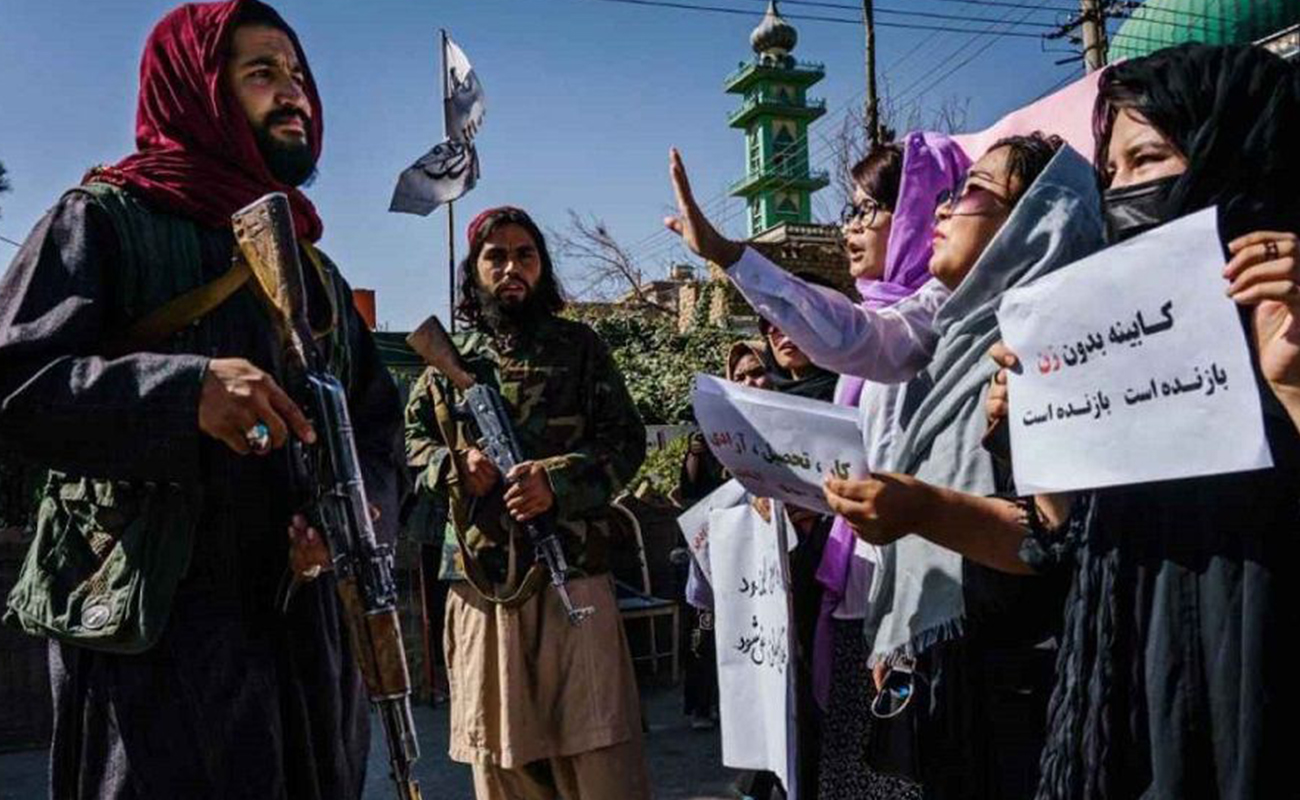Resisting the Shadow of Gender Apartheid: The Struggle for Women's Rights in Afghanistan
By Fatima Faizi
For decades, Afghanistan has been a challenging environment for women who are plagued by gender inequality and a deeply entrenched patriarchal system. The 1990s marked one of the darkest periods in the country's history, as the rise of the Taliban led to the extreme suppression of women's rights. Now, with the Taliban's return to power in 2021, the fears and struggles of the past have resurfaced, and women in Afghanistan are once again facing unimaginable challenges.
In the 1990s, the Taliban's strict interpretation of Islamic law imposed a system of gender apartheid on Afghanistan’s women. They were stripped of their basic rights and freedoms. They were barred from education, employment, and participation in public life. A strict dress code was enforced, requiring women to wear the all-encompassing burqa. Women were also subjected to public floggings and stoning for alleged moral transgressions.
During this time, I was a child living in a rural village in the Ghazni province. I vividly remember the fear that permeated our community when the Taliban would come to our village. They would climb onto our roofs, without asking for permission, and shoot rabbits for sport and fun. Their laughter echoed in the distance every time a rabbit was shot. Girls like me were not allowed to attend school and older girls were not able to venture outside without a male chaperone. Despite these challenges, my mother instilled in me a love for education and the arts, often reading poetry to me by the light of a lantern.
In 2001, the U.S. invasion of Afghanistan and the subsequent ousting of the Taliban regime brought hope to millions of Afghan women. For the first time in years, girls were allowed to attend school, and women could participate in public life. I was fortunate enough to receive an education and experience a taste of freedom and opportunity that my mother could only dream of.
However, the 20-year period of relative progress for Afghan women has come to an abrupt end with the Taliban's return to power in 2021. Despite their claims of being more moderate now, there is ample evidence that the Taliban have not changed their oppressive and fundamentalist approach to women's rights.
Today, women in Afghanistan are once again facing the specter of gender apartheid. The Taliban have already reinstated many of the oppressive measures from the 1990s, including closing girls' schools and imposing strict dress codes. The all-female faculty of Kabul University has been replaced with men, and women are being forced out of their jobs across the country.
So what is gender apartheid? Gender apartheid refers to a systematic and institutionalized form of gender discrimination and segregation that denies equal rights and opportunities to one gender, often women. This term is often used to describe situations in which women are treated as second-class citizens and are subject to oppressive laws and customs that limit their basic rights and freedoms. In many cases, gender apartheid is characterized by strict dress codes, the denial of education and employment opportunities, and restrictions on women's participation in public life.
Gender apartheid is a form of gender-based violence and can have serious physical, psychological, and economic consequences for women. It can also have broader social and economic impacts, as it restricts the potential and contributions of half of society's population. The fight against gender apartheid is an important part of the broader struggle for gender equality and women's rights. It requires sustained efforts to challenge and change discriminatory laws, attitudes, and cultural norms, as well as to support and empower women and girls.
This regression in relation to women's rights is not just a problem for Afghan women; it is a crisis with global implications. The international community must recognize that the denial of basic human rights of half of Afghanistan's population has far-reaching consequences for the stability and prosperity of the entire nation. Afghanistan cannot afford to return to the dark days of the 1990s when women were treated as second-class citizens, deprived of education, healthcare, and the opportunity to contribute to their society.
In the face of these challenges, Afghan women are not remaining silent. They are organizing protests, engaging with international media, and using social media platforms to amplify their voices and call for their rights to be respected. The resilience and courage of these women are a testament to their determination to regain the progress they have made in the last two decades.
The international community must support the women of Afghanistan in their struggle for equality and freedom. This support can come in various forms, including diplomatic pressure on the Taliban, humanitarian aid targeted for women and girls, and providing safe havens for women and girls who are at risk of persecution.
The story of gender apartheid in Afghanistan is one of suffering, resilience, and an unyielding hope for a better future. The women of Afghanistan have shown time and time again that they will not be silenced.
Fatima Faizi is a journalist who fled the country after the Taliban came to power last year. She has reported on Afghanistan for The New York Times, Al Jazeera, The Guardian and Grid News
Academicians and Officials interested to publish their academic pieces on this page, please approach us through: opinions@aissonline.org
The article does not reflect the official opinion of the AISS.

